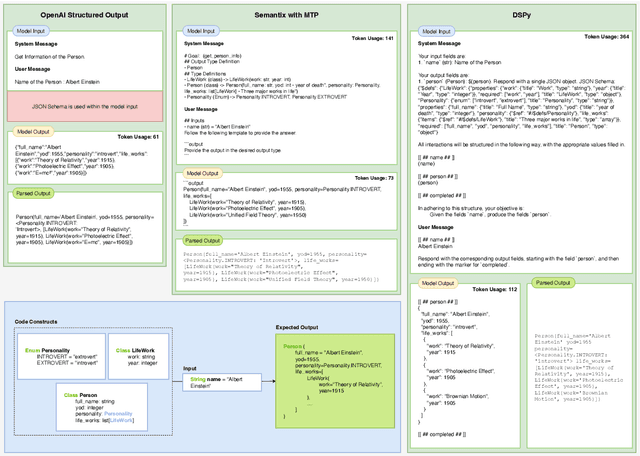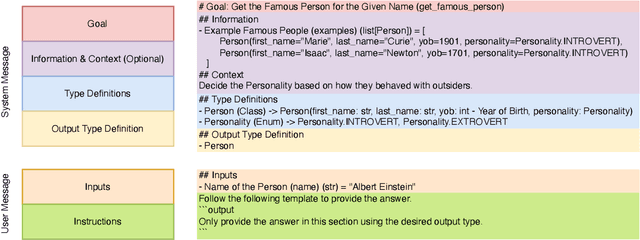Meaning Typed Prompting: A Technique for Efficient, Reliable Structured Output Generation
Paper and Code
Oct 22, 2024



Extending Large Language Models (LLMs) to advanced applications requires reliable structured output generation. Existing methods which often rely on rigid JSON schemas, can lead to unreliable outputs, diminished reasoning capabilities, and increased computational overhead, limiting LLMs' adaptability for complex tasks. We introduce Meaning Typed Prompting (MTP), a technique for efficient structured output generation that integrates types, meanings, and abstractions, such as variables and classes, into the prompting process. By utilizing expressive type definitions, MTP enhances output clarity and reduces dependence on complex abstractions, simplifying development, and improving implementation efficiency. This enables LLMs to understand relationships and generate structured data more effectively. Empirical evaluations on multiple benchmarks demonstrate that MTP outperforms existing frameworks in accuracy, reliability, consistency, and token efficiency. We present Semantix, a framework that implements MTP, providing practical insights into its application.
 Add to Chrome
Add to Chrome Add to Firefox
Add to Firefox Add to Edge
Add to Edge